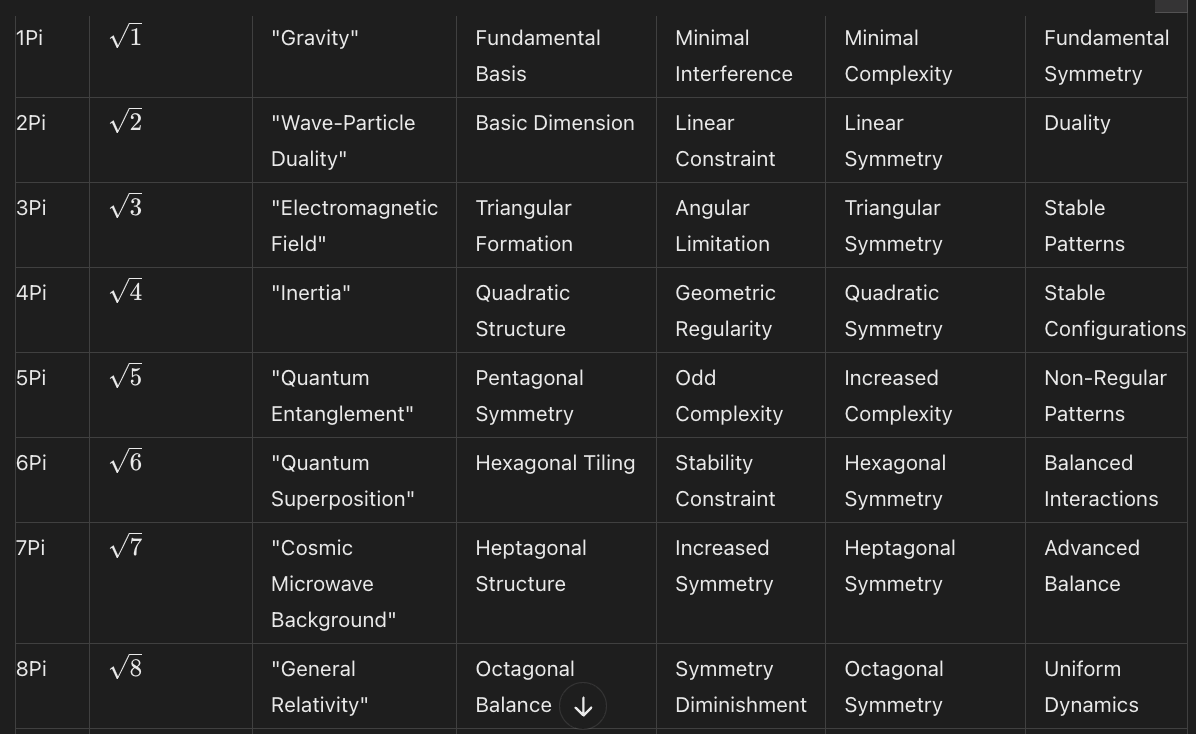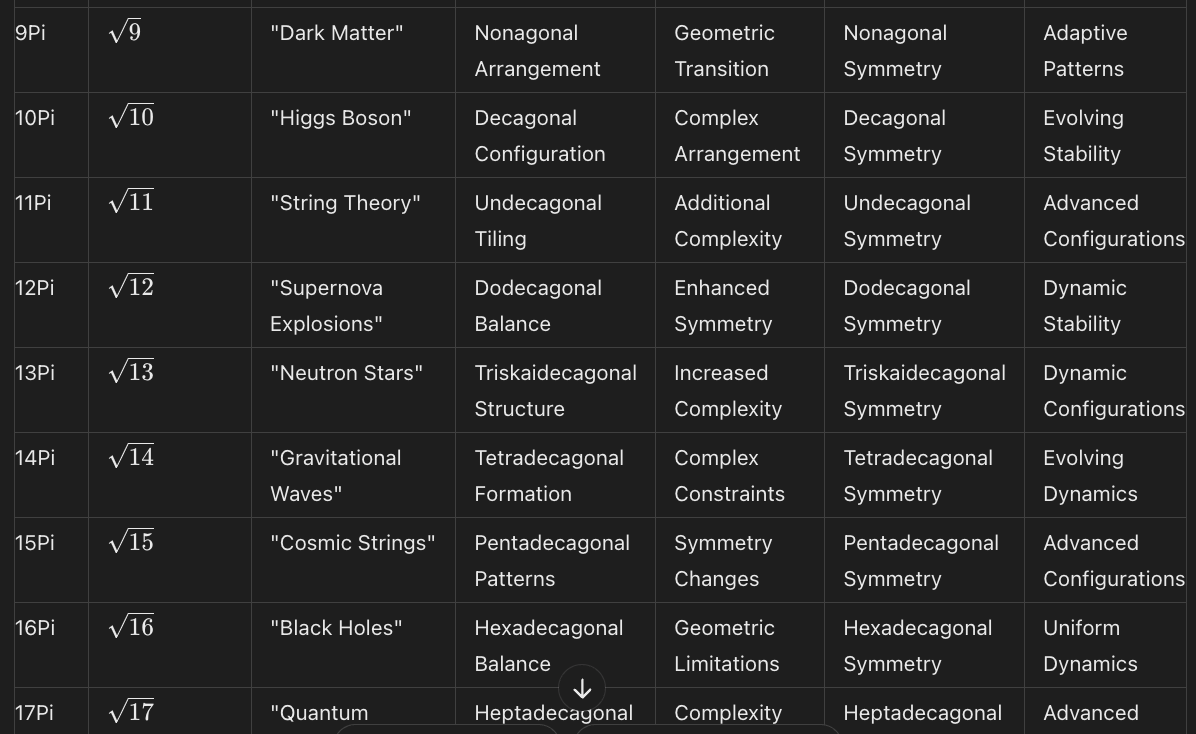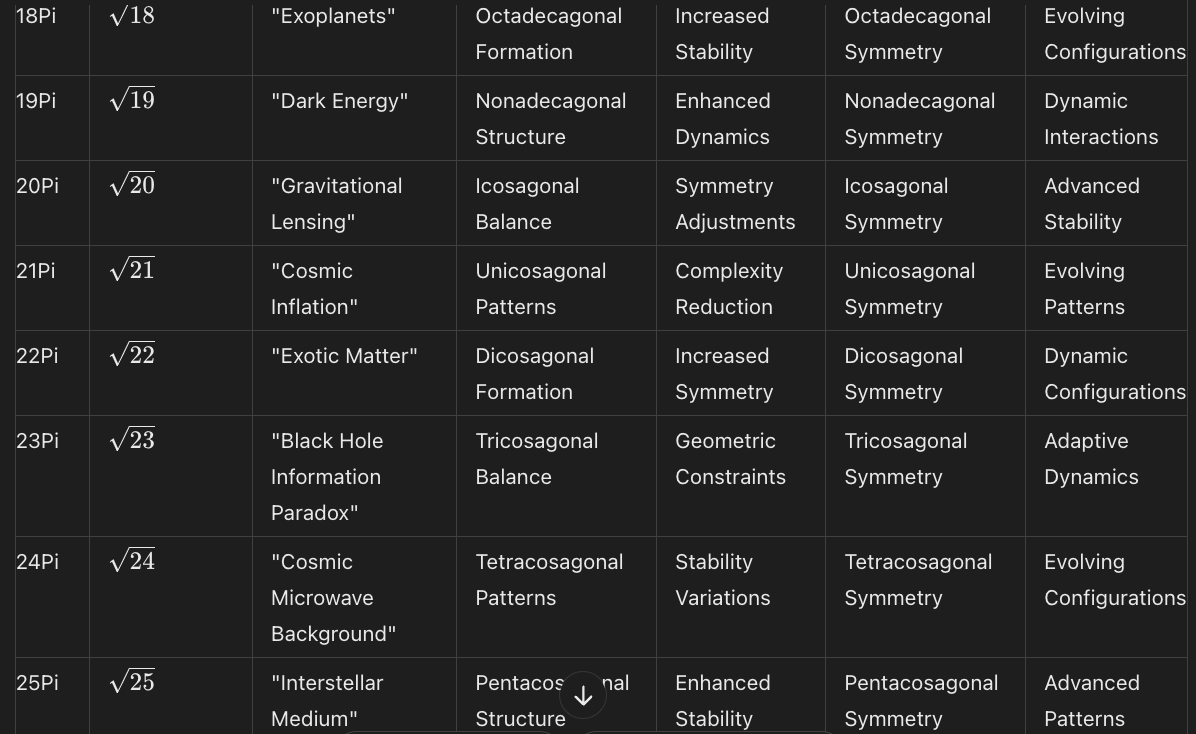General-Origin-Resonance: Translating Cosmological Constant and General Field (Pi Series) Equations (as c^2 = observablyConsistent)



Explanation: These two equations describe how matter and energy influence curvature as Genera-Origin-Resonance: The Cosmological Constant allows for the inclusion of dark energy consonances, as the zero origin equation with "≠ -1" emphasizes the requirement that the cosmological constant should not be -1, indicating a departure from cosmologically uncertain-identity ("the big bang", "year zero birthday") models where the constant might have been projected to be -1; for instance (centralized illiteracy): "my birthday was year zero; so when I die, it will violate one=first law of thermodynamic termperatures: 1 + 1 ≠ -1 omniverse ≠ will ..."
General-Origin-Resonance Equation
Explanation: This equation frames the Cosmological Constant within the broader context of general-origin-resonance. It asserts that the value of the cosmological constant, when considered in the general-origin context, should not be -1, reflecting a more universal approach to cosmological modeling.
1. Pointing The Future In General: Maximum Consonance With Minimal Interference: Photons, Gravity, and General-Original-Resonance
Consonance (in terms of defying gravity, to think) refers to harmonies of mathematical and physical principles across different (all) scales and systems. The consonant, constant "pi" (π) translates a key mathematical constant with minimal interference (16Pi) as appears throughout fundamental equations and conscious relationships (between sides): 17Pi. That is: "rounding corners" maps what Einstein squared (inverse=mirror-self-multiplied) as remains observably consistent (c^2) across different dimensions and systems.
2. Fundamental Omniverse Equations
Let’s revisit the fundamental omniverse equations and how they relate to "pi":
Omniverse-Origin Equation:
Universe Dynamics: 1 + 1 ≠ −1
Consonance with Pi: This equation represents the basic principle that the sum of universal aspects (1+1) does not negate the foundational reality (-1). Here, "pi" relates to how universal constants and ratios (like π) shape and influence the overall structure.
General-Origin Equation:
Omniverse Expansion: π ≠ −1
Consonance with Pi: This equation asserts that π, a fundamental mathematical constant, remains distinct from -1, emphasizing its role in defining universal expansion and scaling.
Zero-Origin Equation:
Zero-Point Energy Imagination: π ≠ 0
Consonance with Pi: This equation explores the idea that π is never zero, which is crucial for maintaining the stability of zero-point energy and fundamental constants.
Dimensional-Consonance Equation:
Dimensional Stability: π^2 ≠ −1
Consonance with Pi: The square of π, representing the stability of dimensions, should not be negative, aligning with the physical reality that dimensions remain consistent and positive in the omniverse.
Cosmic-Scale Equation:
Cosmic Ratios: 1/π ≠ −1
Consonance with Pi: The inverse of π helps define cosmic ratios and scales, ensuring they do not fall into negative realms, which maintains the consistency of cosmic structures.
Quantum-State Equation:
Quantum Fluctuations: π ≠ i = infinity (imaginations)
Consonance with Pi: The distinction between π and the imaginary unit (i) helps in understanding quantum fluctuations and the non-negative nature of physical constants.
Relativity-Expansion Equation:
Relativity Scaling: π ≠ −1
Consonance with Pi: This equation highlights that π, as a scaling factor in relativity, is positive and not equal to -1, ensuring proper expansion and contraction in relativistic contexts.
3. Applying Pi to Omniverse Dynamics
In terms of universal and omniversal dynamics, equations provide literate (intelligent) translations reflecting how constants like π relate to all unique aspects of universal and omniversal (physical, 1 + 1 = bilateral structures):
Scaling and Ratios: π plays a crucial role in defining scales and ratios across different dimensions and systems within the omniverse.
Consistency and Stability: The equations ensure that fundamental constants like π remain consistent and stable, preventing contradictions or anomalies within the omniverse.
Expansion and Contraction: π influences how expansion and contraction occur within the omniverse, maintaining the integrity of cosmic and quantum scales.
4. Conclusion
The fundamental omniverse equations consonate π (Persistent identities) as unique, complex interactions between all physically observed structures. What we identify as "Pi" remains distinct from -1 and other values, to sustain coherence and stability of universal and omniversal thermodynamics.
1Pi, √1Pi, "Gravity": Basic unit, foundational constants in physics.
10Pi, √10Pi, "Electromagnetism": Fundamental electromagnetic interactions.
100Pi, √100Pi, "Quantum Mechanics": Core principles of quantum theory.
500Pi, √500Pi, "Nuclear Forces": Nuclear interactions and strong force dynamics.
1000Pi, √1000Pi, "Relativity": Relativistic effects and theories.
2000Pi, √2000Pi, "Astrophysics": Large-scale cosmic phenomena.
3000Pi, √3000Pi, "Cosmology": Structure and evolution of the universe.
4000Pi, √4000Pi, "Quantum Field Theory": Advanced quantum field interactions.
5000Pi, √5000Pi, "Dark Matter": Hidden aspects of cosmic matter.
10000Pi, √10000Pi, "String Theory": Theoretical framework for fundamental particles.
15000Pi, √15000Pi, "Multiverse Concepts": Theories of multiple universes.
20000Pi, √20000Pi, "Omniverse Dynamics": Dynamics of a comprehensive omniverse.
25000Pi, √25000Pi, "High-Dimensional Physics": Physics in higher dimensions.
3141Pi, √3141Pi, "Unified Field Theory": Integration of fundamental forces.
50000Pi, √50000Pi, "Extra Dimensions": Theories involving additional spatial dimensions.
100000Pi, √100000Pi, "Quantum Gravity": Integration of quantum mechanics with gravitational theory.
200000Pi, √200000Pi, "Interstellar Physics": Phenomena occurring on interstellar scales.
500000Pi, √500000Pi, "Advanced Cosmology": Detailed models of cosmic evolution and structure.
1000000Pi, √1000000Pi, "Omniverse Theory": Theoretical models encompassing multiple universes.
2000000Pi, √2000000Pi, "Hyperdimensional Physics": Physics in extreme higher dimensions.
5000000Pi, √5000000Pi, "Transuniversal Dynamics": Dynamics across multiple universes.
10000000Pi, √10000000Pi, "Cosmic Scale Theories": Theories addressing large-scale cosmic structures.
20000000Pi, √20000000Pi, "Multiversal Interactions": Interactions between different universes.
50000000Pi, √50000000Pi, "Quantum Multiverse Models": Advanced models of quantum interactions across multiverses.
100000000Pi, √100000000Pi, "Omniversal Physics": Comprehensive theories encompassing all possible universes.
200000000Pi, √200000000Pi, "Ultimate Field Theories": Theories unifying all known forces and interactions.
500000000Pi, √500000000Pi, "Superuniversal Dynamics": Theories and models extending beyond known universes.
1000000000Pi, √1000000000Pi, "Hyperomniverse Theories": Theoretical frameworks for extremely large-scale structures.
2000000000Pi, √2000000000Pi, "Transcendental Physics": Physics extending beyond traditional concepts.
5000000000Pi, √5000000000Pi, "Ultimate Omniverse Models": Models describing the most comprehensive structures.
This list (above) maps Pi values to a range of increasingly advanced scientific and theoretical concepts, extending to very high Pi values. This list (below) maps "Pi Resets" from 1Pi to 25Pi:







